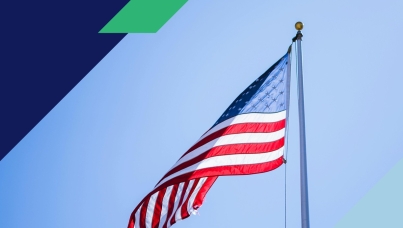Many Americans have experienced buyer’s remorse
Washington DC, June 27, 2023—New findings from a Google/Ipsos poll finds that most Americans shop at least once a month, if not more, with many seeking out deals and discounts. Most Americans will wait and plan out their shopping for holiday shopping days. Despite this planning, many Americans experience buyer’s remorse. Many believe buyer’s remorse is due to impulse purchases and buying products they don’t need. Strategies the public sees to combat buyer’s remorse include price comparing across retailers and brands, and researching the product properly.
Detailed findings:
Many Americans shop frequently.
- Two in three Americans shop at least monthly, with about half (30%) shopping weekly.
- Many Americans (43%) seek out deals often when shopping online. Few view discounts that are less than 10% off as a good deal. Most Americans view anywhere from 10 to 29% off and 30 to 49% off as discounts that qualify as a good deal.
- Most (49%) will wait at least a month if not longer to purchase a non-essential item if they know they can get it on sale at a later day. Among these, people 18% wait till holiday shopping days to make a deal. Unsurprisingly, three in five Americans (60%) say they plan their purchases when shopping on retailers ‘deal days’.
Even so, with so much shopping Americans are doing—planned and otherwise—some still have bought something that was on sale and then later regretted it.
- Two in five Americans (42%) say they have bought something on sale and then later regretted it.
- Among people who regret a purchase, most (62%) regret it because they report not really needing it.
- Other reasons people report regretting a purchase include impulse purchasing (42%), having too much stuff already (34%), finding it at a lower price (19%), not doing proper research (17%), and not bothering to compare prices from other stores (13%).
- In fact, 58% of Americans say that more than once they have purchased a product on sale only to then eventually find it for an even lower price somewhere else.
- Four in five Americans experience buyer’s remorse at least some of the time even when they do their research.
Still, even with regrettable purchases in their past, many American cite some tools and resources that they feel could help prevent buyer’s remorse.
- Half of Americans (53%) say that being able to price compare across retailer/brands may help prevent buyer’s remorse.
- A similar share (47%) say researching the product properly may ward off against buyer’s remorse.
- Fewer Americans believe planning to buy something in advance (37%), getting price drop alerts (28%), seeing if a product is priced high, typical, or low (25%), or seeing how a product’s price has fluctuated over the last 90 days (25%) will help prevent buyer’s remorse.
- Perhaps that’s because most Americans think buyer’s remorse is really about impulse purchasing (39%) or purchasing an item they don’t really need (25%).
About the Study
This Google/Ipsos poll was conducted by Ipsos from May 12 to May 14, 2023, using the probability-based KnowledgePanel®. This poll is based on a nationally representative probability sample of 1,358 adults age 18 or older.
The survey was conducted using KnowledgePanel, the largest and most well-established online probability-based panel that is representative of the adult U.S. population. Our recruitment process employs a scientifically developed addressed-based sampling methodology using the latest Delivery Sequence File of the USPS – a database with full coverage of all delivery points in the U.S. Households invited to join the panel are randomly selected from all available households in the U.S. Persons in the sampled households are invited to join and participate in the panel. Those selected who do not already have internet access are provided a tablet and internet connection at no cost to the panel member. Those who join the panel and who are selected to participate in a survey are sent a unique password-protected log-in used to complete surveys online. As a result of our recruitment and sampling methodologies, samples from KnowledgePanel cover all households regardless of their phone or internet status and findings can be reported with a margin of sampling error and projected to the general population.
The study was conducted in English. The data were weighted to adjust for gender by age, race/ethnicity, education, Census region, metropolitan status, and household income. The demographic benchmarks came from the 2022 March Supplement of the Current Population Survey (CPS). The weighting categories were as follows:
- Gender (Male, Female) by Age (18–29, 30–44, 45–59 and 60+)
- Race/Hispanic Ethnicity (White Non-Hispanic, Black Non-Hispanic, Other, Non-Hispanic, Hispanic, 2+ Races, Non-Hispanic)
- Education (Less than High School, High School, Some College, Bachelor or higher)
- Census Region (Northeast, Midwest, South, West)
- Metropolitan status (Metro, non-Metro)
- Household Income (Under $25,000, $25,000-$49,999, $50,000-$74,999, $75,000-$99,999, $100,000-$149,999, $150,000+)
The margin of sampling error is plus or minus 2.8 percentage points for online shoppers at the 95% confidence level, for results based on the entire sample of adults. The margin of sampling error takes into account the design effect, which was 1.12. The margin of sampling error is higher and varies for results based on sub-samples. Sampling error is only one potential source of error. There may be other unmeasured non-sampling error in this or any poll. In our reporting of the findings, percentage points are rounded off to the nearest whole number. As a result, percentages in a given table column may total slightly higher or lower than 100%. In questions that permit multiple responses, columns may total substantially more than 100%, depending on the number of different responses offered by each respondent.
About Ipsos
Ipsos is one of the largest market research and polling companies globally, operating in 90 markets and employing over 18,000 people.
Our passionately curious research professionals, analysts and scientists have built unique multi-specialist capabilities that provide true understanding and powerful insights into the actions, opinions and motivations of citizens, consumers, patients, customers or employees. We serve more than 5000 clients across the world with 75 business solutions.
Founded in France in 1975, Ipsos is listed on the Euronext Paris since July 1st, 1999. The company is part of the SBF 120 and the Mid-60 index and is eligible for the Deferred Settlement Service (SRD).
ISIN code FR0000073298, Reuters ISOS.PA, Bloomberg IPS:FP www.ipsos.com



